Robert Plant, the iconic front man of Led Zeppelin, is known for his soaring vocals, magnetic stage presence, and larger-than-life persona. But behind the mythos of rock stardom lies a poignant and deeply human story—a love affair marked by passion, rebellion, and ultimately, heartbreaking tragedy.
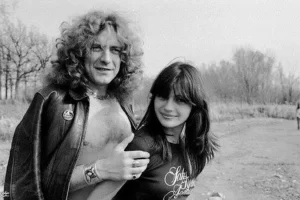 In the 1970s, during the zenith of Led Zeppelin’s fame, Plant was surrounded by a world of excess: sold-out arenas, private jets, and adoring fans. Among them were groupies, young women who followed bands from city to city, drawn by the allure of the music and the myth. But one relationship stood out for Plant—an affair that began as a fleeting romance and evolved into something far more meaningful.
In the 1970s, during the zenith of Led Zeppelin’s fame, Plant was surrounded by a world of excess: sold-out arenas, private jets, and adoring fans. Among them were groupies, young women who followed bands from city to city, drawn by the allure of the music and the myth. But one relationship stood out for Plant—an affair that began as a fleeting romance and evolved into something far more meaningful.
ROBERT PLANT’S X WIFE
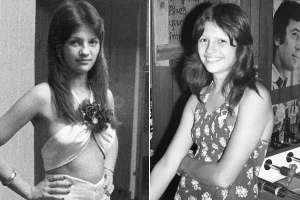
Her name was Maureen Wilson, Plant’s wife and mother to three of his children, but even during their time together, rumors and tales of affairs swirled around the band. Among the most whispered-about was Plant’s deep emotional connection with a young woman he met on the road—an unnamed groupie whose presence became more than a passing fling. Though many groupie encounters were short-lived, this one seemed different. Plant reportedly described her as ethereal, wild, and someone who “understood the music the way I did.”
Their bond blossomed during the band’s U.S. tours, and while Plant was fiercely private about the relationship, close associates say it brought out a softer, more grounded side of the rock god. She was a muse of sorts, inspiring moments of introspection and even influencing the mood of his songwriting.
BUT TRAGEDY SOON STRUCK: THE DEATH OF HIS SON KARAC
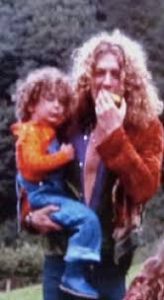
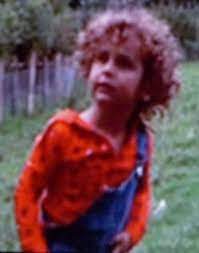

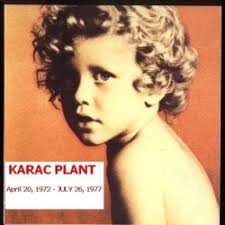
In 1977, while Led Zeppelin was touring the U.S., Plant received devastating news: his five-year-old son, Karac, had died suddenly of a stomach virus. The loss shook Plant to his core. He immediately flew back to England, abandoning the tour. Grief consumed him, and he withdrew from the public eye.
In the wake of this unimaginable tragedy, Plant’s romantic world also unraveled. The young woman who had traveled with the band was reportedly unable to cope with the emotional weight of the situation. Friends say she tried to stay by his side, but Plant’s grief made it impossible for him to connect. Eventually, the relationship dissolved—quietly, painfully.
The loss of his son became a turning point in Plant’s life. He considered leaving music entirely and focused on healing with his family. While he eventually returned to the stage, something fundamental had changed. The fire of youth gave way to a deeper, more soulful artistry, and Plant’s later work often carries a mournful, reflective tone.
In interviews years later, Plant rarely spoke about that chapter of his life. But in one revealing moment, he said, “You never really move on from something like that. You learn to carry it. And sometimes, you sing it.”
While the identity of the groupie he loved may remain a mystery, the emotions behind their story live on through the undercurrents of his music. It is a reminder that behind the legends and the leather pants are real people—capable of great love, deep loss, and fragile humanity.
And for Robert Plant, that tragic love remains etched in memory, a silent chord in the symphony of his life.
Leave a Reply